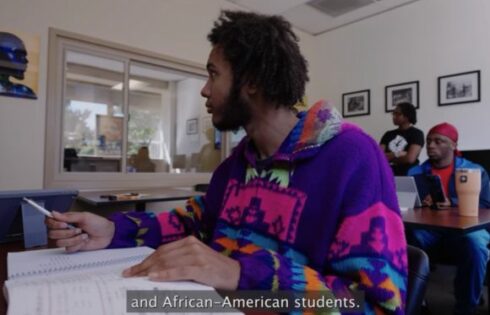
Theodore R. Johnson, a “former White House fellow and doctoral candidate in law and policy at Northeastern University,” makes the case in the Washington Post for giving African-Americans more voting power than other Americans.
“The just answer today is to invert th[e] ratio,” Johnson says. “If black Americans were once counted as three-fifths of a person, let each African American voter now count as five-thirds.”
That’s 167 percent of someone else’s (non-black) vote.
Johnson says this is necessary because legislators haven’t done enough to combat structural racism.
A five-thirds compromise would imbue African Americans with a larger political voice that could be used to fight the structural discrimination expressed in housing, education, criminal justice and employment. Allowing black votes to count for 167 percent of everyone else’s would mean that 30 million African American votes would count as 50 million, substituting super-votes for the implausible idea of cash payments.
This weighted vote, coupled with an increasingly active black electorate that in 2012 had a higher voter participation rate than whites for the first time in history, would offer African Americans an outsize influence on national and state elections. Politicians, finally, would have to truly compete for the black vote, or a substantial share of it, to attain or remain in office. This would provide an incentive, even for purely self-interested politicians, to prioritize African American policy concerns and act on them, or face a loss at the polls.
Johnson at least is sensible enough to realize what he espouses stands little chance of becoming reality — it’s “only slightly more politically feasible” than monetary reparations, he says.
Indeed, he even points out how President Obama would have won by an even bigger margin in 2012, and how the Senate would still be in Democratic control if his idea was implemented.
Interesting, too, is Johnson’s prescription for determining who is “black” in order to take advantage of the weighted voting:
“The most straightforward approach would be to limit access to weighted voting to those American-born citizens who have demonstrated through government documents, such as drivers’ licenses or birth certificates, that they identify, and are identified by others, as black or African American.”
But … haven’t we been told repeatedly that requiring such documentation to vote is … racist?
Not to mention, when Johnson mentions “African-American policy concerns,” does he mean that black Americans are all of like political mind? If so, haven’t we been told, too, that holding such an opinion is racist, however subtle?
Like The College Fix on Facebook / Follow us on Twitter
IMAGE: Shutterstock






Please join the conversation about our stories on Facebook, Twitter, Instagram, Reddit, MeWe, Rumble, Gab, Minds and Gettr.